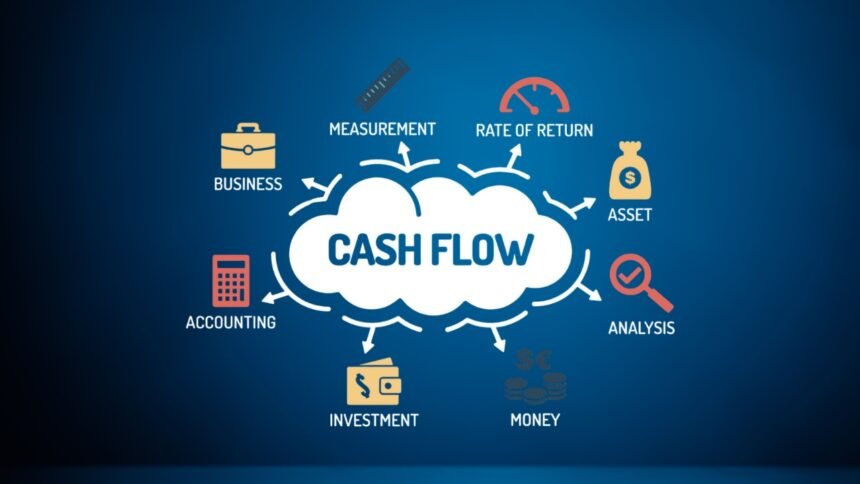Imagine walking into a bustling barbershop, the hum of clippers filling the air, or grabbing a quick bite from a food truck parked at a lively street corner. These small, cash-based enterprises are more than just nostalgic relics; they’re thriving in today’s economy. Cash businesses, often characterized by their reliance on immediate cash transactions, are a vital part of the economic fabric in the USA and Canada. From barbershops to food carts, these ventures offer entrepreneurs flexibility and customers convenience. In this blog, we’ll dive deep into the world of cash businesses, exploring why they remain popular, how they operate, their challenges, and their future in a digital world. Drawing from industry insights, real-world examples, and discussions on platforms like Reddit, we’ll uncover why cash businesses continue to flourish in North America.
Understanding Cash Businesses
Cash businesses are enterprises that primarily conduct transactions using physical currency, such as cash or, in some cases, checks, rather than relying heavily on digital payments like credit cards or mobile apps. These businesses span various industries, including retail, food services, personal care, and home services. Think of your local diner, a street vendor selling handmade jewelry, or a lawn care service that accepts cash for a quick job. According to a 2023 Federal Reserve study, while digital payments are on the rise, cash transactions still account for approximately 18% of all payments in the USA, particularly for small, in-person purchases. In Canada, the Bank of Canada notes a similar trend, with cash remaining prevalent in rural areas and small businesses.
The appeal of cash businesses lies in their simplicity. For entrepreneurs, accepting cash eliminates the need for expensive point-of-sale systems or merchant fees, which can range from 2-4% per transaction. For customers, cash offers a straightforward, tangible way to pay without worrying about digital security or hidden fees. However, this simplicity comes with unique operational considerations, which we’ll explore further.
Why Cash Businesses Thrive in North America
Several factors contribute to the enduring popularity of cash businesses in the USA and Canada. First, cultural habits play a significant role. In many communities, particularly in rural or underserved areas, cash remains king due to limited access to digital banking or distrust in electronic payments. A Reddit user in a small-business thread noted, “In my town, the best taco truck only takes cash, and people love it because it’s quick and feels personal.” This sentiment reflects a broader preference for the tactile, immediate nature of cash transactions.
Additionally, cash businesses cater to convenience-driven consumers. Small transactions, like buying a coffee or tipping a street performer, are often faster with cash. Moreover, cash businesses appeal to entrepreneurs seeking low barriers to entry. Starting a food cart or a mobile car wash requires minimal upfront investment compared to launching a tech-heavy startup. As a result, cash businesses attract a diverse range of individuals, from immigrants building new lives to retirees supplementing income.
The Mechanics of Running a Cash Business
One of the biggest draws of cash businesses is their operational ease. Without the need for complex payment processing systems, owners can focus on delivering quality services or products. For example, a barbershop owner can invest in better tools or training rather than spending on software subscriptions. This flexibility allows cash businesses to adapt quickly to market demands. If a food truck sees a surge in demand for a new menu item, the owner can pivot without worrying about updating digital menus or payment integrations.
However, this simplicity requires discipline. Cash businesses must maintain meticulous records to track income and expenses. On Reddit, small-business owners frequently share tips for managing cash flow, with one user advising, “Get a good safe and log every transaction daily. It’s a pain, but it saves you during tax season.” Proper bookkeeping is critical, as cash transactions can be harder to trace than digital ones, increasing the risk of errors or audits.
Navigating Taxes and Compliance
Tax compliance is a significant consideration for cash businesses. Because cash transactions are less traceable, some owners may be tempted to underreport income. However, this practice is risky and illegal. The IRS and Canada Revenue Agency (CRA) closely monitor cash-based industries like restaurants and personal services. Dr. Emily Carter, a tax law professor at the University of Toronto, emphasizes, “Cash businesses must maintain transparent records to avoid penalties. Using accounting software or hiring a professional can prevent costly mistakes.” Her advice underscores the importance of integrity in financial reporting.
To stay compliant, many cash business owners invest in simple accounting tools or work with bookkeepers. For instance, a nail salon owner might use a ledger to track daily cash intake and issue receipts to customers. These practices not only ensure compliance but also build trust with clients, who appreciate transparency.
Challenges Facing Cash Businesses
While cash businesses offer many advantages, they also face unique challenges. Security is a primary concern, as handling large amounts of cash increases the risk of theft. A food truck owner parked in a busy urban area, for example, must take precautions to safeguard earnings. Reddit discussions on small-business security often highlight practical solutions, such as using drop safes, limiting cash on hand, or making frequent bank deposits. These measures help mitigate risks but require additional time and resources.
Moreover, cash businesses may struggle with customer disputes. Without digital receipts, resolving issues like overpayment or incorrect change can be tricky. Owners must rely on clear communication and trust to maintain positive customer relationships.
Competition from Digital Alternatives
As digital payments gain traction, cash businesses face growing competition from tech-savvy competitors. Mobile apps like Venmo, PayPal, and Square allow even small vendors to accept card payments, appealing to younger, tech-oriented consumers. In urban areas, where contactless payments are increasingly common, cash-only businesses risk losing customers who prefer the convenience of tapping a card. To stay competitive, some cash businesses adopt hybrid models, accepting both cash and digital payments. A coffee shop, for instance, might install a low-cost card reader while still prioritizing cash for small transactions.
Despite this shift, cash businesses retain a loyal customer base. Older generations, budget-conscious shoppers, and those wary of digital tracking often prefer cash. By focusing on personalized service and community engagement, cash businesses can differentiate themselves in a crowded market.
The Future of Cash Businesses
Looking ahead, cash businesses must navigate an evolving economic landscape. While cash will likely remain relevant for small transactions, the rise of digital currencies and contactless payments poses both challenges and opportunities. Some cash businesses are already adapting by incorporating minimal tech solutions. For example, a farmer’s market vendor might use a smartphone-based card reader for larger purchases while keeping cash as the default for smaller ones. This hybrid approach allows businesses to cater to diverse customer preferences without sacrificing their core identity.
Furthermore, cash businesses can leverage their community ties to stay relevant. Local loyalty programs, social media engagement, and participation in community events help build strong customer relationships. A Reddit thread on small-business marketing emphasized the power of word-of-mouth, with one user stating, “My cash-only bakery gets most of its business from locals who spread the word. It’s like free advertising.” By fostering a sense of belonging, cash businesses can maintain their appeal in an increasingly digital world.
Opportunities for Growth
The future also holds exciting growth opportunities for cash businesses. As consumers seek authentic, personalized experiences, cash-based enterprises like artisanal food stalls or pop-up markets are well-positioned to thrive. Additionally, cash businesses can tap into niche markets, such as eco-conscious consumers who prefer cash to avoid the environmental impact of digital transactions. By aligning with emerging trends and maintaining their commitment to simplicity, cash businesses can continue to prosper.
Conclusion: The Enduring Appeal of Cash Businesses
In a world dominated by digital transactions, cash businesses stand as a testament to the power of simplicity and human connection. From the corner deli to the mobile dog groomer, these enterprises offer entrepreneurs a low-cost way to pursue their dreams and customers a convenient, personal way to shop. While challenges like security and competition require careful management, the resilience of cash businesses is undeniable. By embracing adaptability, transparency, and community engagement, they can thrive in the USA and Canada for years to come.
Cash businesses are more than just a transactional model; they’re a cultural touchstone, reminding us of the value of face-to-face interactions. Whether you’re handing over a few dollars for a fresh taco or tipping your barber with cash, you’re participating in a tradition that’s both timeless and evolving. As we move forward, let’s celebrate the ingenuity and grit of cash business owners, who prove that even in a digital age, cash still has a place in our wallets and our hearts.






